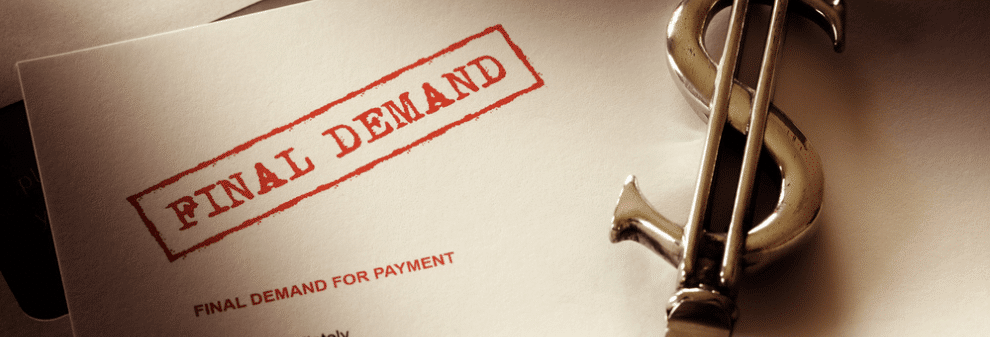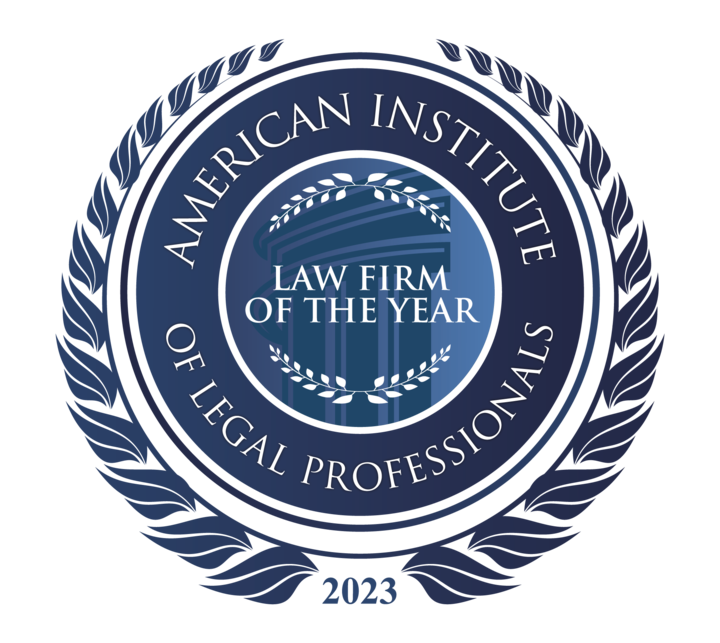Creditor Harassment Lawyers
Discussing Debt Collection Laws

If you owe a debt in California, you receive certain protections under the federal Fair Debt Collection Practices Act (FDCPA). This was codified in 1977 and prohibits debt collectors from practices that are considered dishonest, abusive or harassing.
Under the creditor harassment legislation, debt collectors must:
- Provide certain information in all communications regarding debt collection.
- Not pursue collections while a debt is in dispute.
- Not mislead the debtor to collect a debt.
- Only phone at certain times of the day — and with limited frequency.
- Not contact employers, family members or other third parties.
- Not use obscene language or threaten actions that can’t be taken.
- Restrict the information provided on the outside of an envelope or other places that may be visible to outsiders.
- Not use formatting or emblems that create the impression that documents are from a court, law enforcement officer or other governmental entity.
If you’ve been followed up by debt collectors, you may have experienced some or all of these strategies but you may not even be aware that they are unlawful under the terms of the FDCPA.
Even though it’s over 50 years old, the creditor harassment protections that the FDCPA provides are powerful and far-reaching. You may even be able to claim damages if you have been subject to these unscrupulous practices (more about this below).
Exercising your right to be free from creditor harassment in California
Despite the protections provided by existing legislation, harassment, dishonesty and abuse from creditors remains a problem in California.
Every year, tens of thousands of complaints are made by California residents to the FDCPA about debt collection practices, including many cases of agencies trying to collect debts that are not owed.
Many more cases go unreported or reported to other agencies. Sometimes, people do nothing because they’re not aware of their rights. Others appoint debt defense lawyers to fight false claims and these cases also go unreported.
You can protect and exercise your rights by keeping accurate information about the debt collection practices used against you. This includes keeping records of:
- All debt collection letters and notices you receive.
- Envelopes that contain key information such as the name of a collection agency that labels the communication as relating to a debt.
- The times and dates of telephone calls, the relevant phone numbers, the name of the person you spoke to and how they identified themselves, as well as a summary of what you discussed.
- Threats or abusive language used against you.
As long as you keep accurate records of what happened, you may use the information in one or more of the following ways:
- Make a claim to a governmental agency that pursues enforcement actions against debt collectors.
- Pursue a direct claim with a debt defense lawyer under the relevant legislation.
- Use the creditor harassment violations as leverage against the collector to negotiate your debt.
The most important thing is that you do something and not just accept abuse, misconduct or harassment from debt collectors.
When and where can a debt collector call you?
Under the FDCPA, you are protracted from disruptive phone calls from collectors. There are some very specific rules for the timing as well as the nature of the communications.
Collectors cannot call you before 8 am or after 9 pm but emails or text messages can be sent at any time. Repeated calls about the same issue even between 8 am and 9 pm are not allowed and they cannot call you at work if you ask them not to. Also, if you have disputed the debt in writing, they are prohibited from calling you about it.
Debt collectors are also prohibited from telling your friends, family, or coworkers about the debt.
California state creditor harassment laws
The federal Fair Debt Collection Practices Act only protects you from unscrupulous third-party debt collectors, such as collection agencies and debt buyers —not the original creditors.
So, under federal law, your credit card company, mortgage provider or car loan company can take more forceful action against you than a debt collection agency appointed to recover the debt.
However, in California, a statute called the Rosenthal Fair Debt Collection Practices Act outlines the acceptable and reasonable steps that debt collectors can take to enforce and collect payment of debts. This extends protections to those facing inappropriate collection action by the original creditor as well as third-party debt collectors — and the laws even extend to those who make and sell debt collection materials such as forms and templates.
Can you sue your debt collector due to harassment?
If a creditor or debt collection agency breaks the creditor harassment laws, you can sue them in California.
That’s why it’s so important to keep detailed records of your communications from the moment they start contacting you about the debt. If you can prove that the debt collector violated state or federal laws, you can stop the harassment and hold them accountable.
The potential damages award from such a case can also help you:
- Cover the entire debt (if it ever existed)
- Avoid Chapter 7 bankruptcy
- Restructure a debt if necessary
If debt collectors have violated any rules under state or federal legislation, The Sands Law Group APLC can assist you in holding them accountable.
Our debt defense lawyers represent individuals, families, and businesses in California and can help you navigate your legal issue with compassion and experience. Contact us or call at 213-788-4412 today for a free 15-minute phone consultation about your case.









